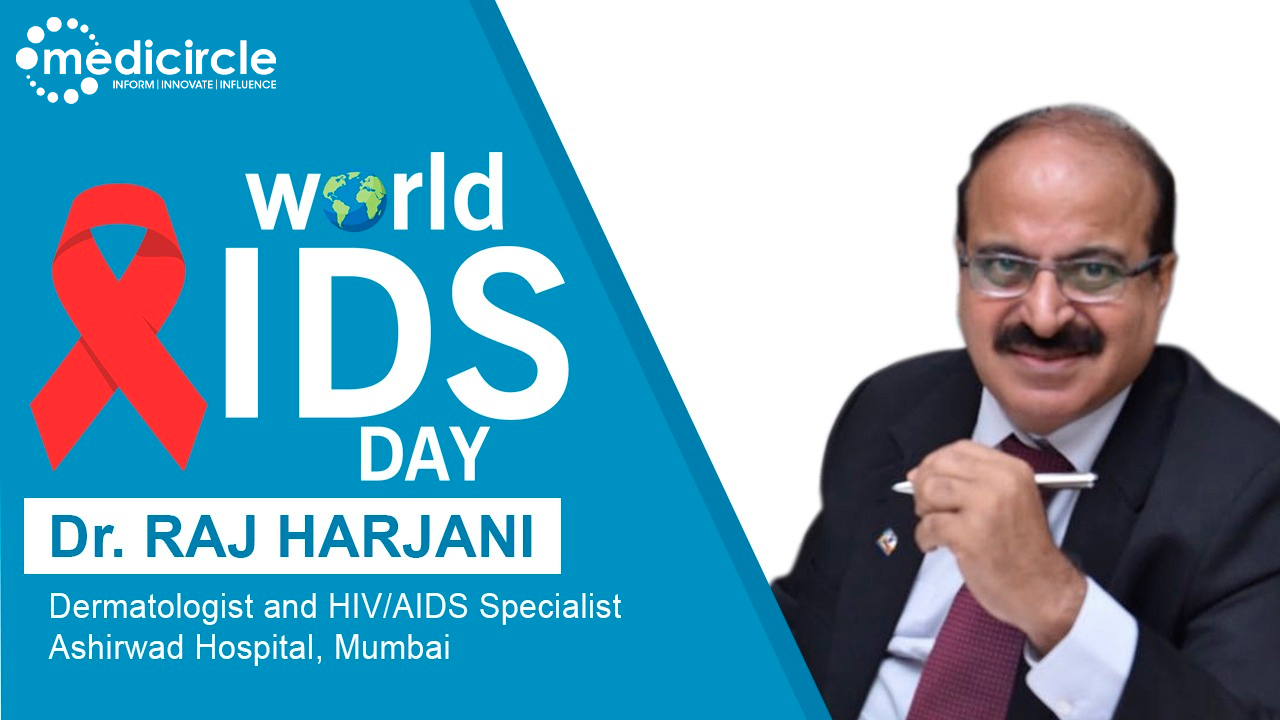AIDS stands for acquired immune deficiency syndrome. It’s also called advanced HIV infection or late-stage HIV. HIV stands for human immunodeficiency virus. HIV is a virus that attacks cells in the immune system (the body’s natural defense against illness). The virus destroys a type of white blood cell in the immune system called a T-helper cell or CD4 cell. It gradually weakens a person’s immune system.
India has the third-largest HIV epidemic with 2.35 million people living with HIV. Of this 1.345 million are receiving ART. There were 69,220 new HIV infections and 58,960 AIDS-related deaths reported in India in 2019. India’s HIV epidemic is driven by sexual transmission. The three states with the highest HIV prevalence, Manipur, Mizoram and Nagaland, are in the east of the country. India’s HIV epidemic is slowing down. Between 2010 and 2017 new infections declined by 27% and AIDS-related deaths more than halved, falling by 56%.
World AIDS Day is celebrated every year on December 1 not only to spread awareness about the disease but also to remind the people and the governments that HIV has not gone away. People with HIV can enjoy a long and healthy life by taking antiretroviral treatment (ART). India, with other nations globally, has promised to end AIDS by 2030.
We at Medicircle are conducting World AIDS Day Awareness Series to educate people about AIDS and its preventive measures from eminent Expert Doctors and Medical professionals.
Dr. Raj Harjani is a practicing Dermatologist for the last 41 years and HIV/AIDS Specialist at the Center of Excellence for HIV/AIDS, Ashirwad Hospital, Mumbai for 28 years. He was a former consultant and founder-director of AIDS RESEARCH and CONTROL CENTER at Rajiv Gandhi Medical College and Chhatrapati Shivaji Maharaj Hospital.
He is the first doctor from India to say in 2007 that HIV-positive women cannot pass HIV to their uninfected partner and deliver HIV-negative babies when on Anti-retroviral Therapy (ART). He is the recipient of the Lifetime Achievement Award in 2020 for the work done in the field of Dermatology and HIV/AIDS. He was also awarded Best Research Award in HIV/AIDS by the Indian Association of Dermatologists Venereologists and Leprologists (IADV&L) in 2020.
AIDS or HIV
Dr. Harjani begins, “HIV is a Human immunodeficiency virus. AIDS on the other hand is acquired immune deficiency syndrome. This means that the person has gone from HIV, which was asymptomatic, to asymptomatic and chronic disease. AIDS patients who don't take treatment will die due to opportunistic infections. Fortunately, this can be avoided by administering medications."
Four stages
Dr. Harjani explains, "There are 4 stages of HIV and AIDS.
Stage 1: Infection
Stage 2: Asymptomatic
Stage 3: Symptomatic
Stage 4: Progression of HIV to AIDS
It is usually in the last stage, that is AIDS, that people come to the hospital."
Symptoms
"One key symptom is a persistent fever for 3 or more months. Weight loss, lymph nodes TB, viral and fungal diseases are also observed."
"In AIDS, pneumonia or COVID if not treated in time can cause death. Tumors too are very common in AIDS patients. Non-Hodgkin's lymphoma is common. Loose motion, loss of appetite, and other such signs are the major symptoms."
Importance of CD4 count
Dr. Harjani says, "CD4 are helper cells. CD4 is part of the immune system which gets activated when the body faces any infection. When one has HIV, the CD4 cells get attacked. A normal CD4 count is 500 to 1600 cells per cubic millimeter of blood. A person with this number is called immunocompetent."
"But when this number dips from 500 to anywhere between 200 to 500, then the person is called immunocompromised. Usually, people that have diabetes, cancer, or organ transplant are the ones who have an immunocompromised state. If the number further dips down below 200, then that person is called immunodeficient. Along with count, we also do CD4 percentage. Based on CD4 we start our investigations. With treatment, CD4 increases and viral count decreases."
Infection susceptibility
Dr. Harjani mentions, "CD4 gives protection against bacterial and viral infections. Especially against chronic infections like TB and more. When the CD4 count diminishes, there is a dysregulation of the immune system. Unless an antiretroviral therapy (ART) is not used, the person's immunity will not be built up."
Treatments for AIDS
Dr. Harjani says, "There are antiretroviral drugs (ARVs) available. When we treat them we say the patient is on antiretroviral therapy (ART) or combined antiretroviral therapy (CART). These are synonyms and hence should not be confused. These treatments are prescribed from very early on. If the patient wishes to discontinue then it is an unpardonable mistake."
"If you are prescribed a single-tablet regimen (STR), then irrespective of where you are or what you are undergoing the tablet should be taken at the exact same time. By missing a dose, they are causing 3.3% poor adherence. If the adherence level is above 90, then the success rate will be 100%."
Spread of HIV
Dr Harjani adds, "With treatments one can make sure that the HIV doesn't pass to another partner. This can help the couple get pregnant without the spread of HIV from one partner to another. Nowadays there are injectables available for those who due to social stigma are not willing to take tablets."
(Edited by Priyal Shah)

 Learn how with proper treatment and medications, HIV patients can have safe pregnancy, longer lives and more.
Learn how with proper treatment and medications, HIV patients can have safe pregnancy, longer lives and more. 




.jpeg)

.jpeg)

.jpeg)
_(1).jpeg)
_(1)_(1)_(1).jpeg)

.jpeg)
.jpeg)





.jpeg)

.jpeg)
.jpeg)






.jpeg)
.jpeg)
